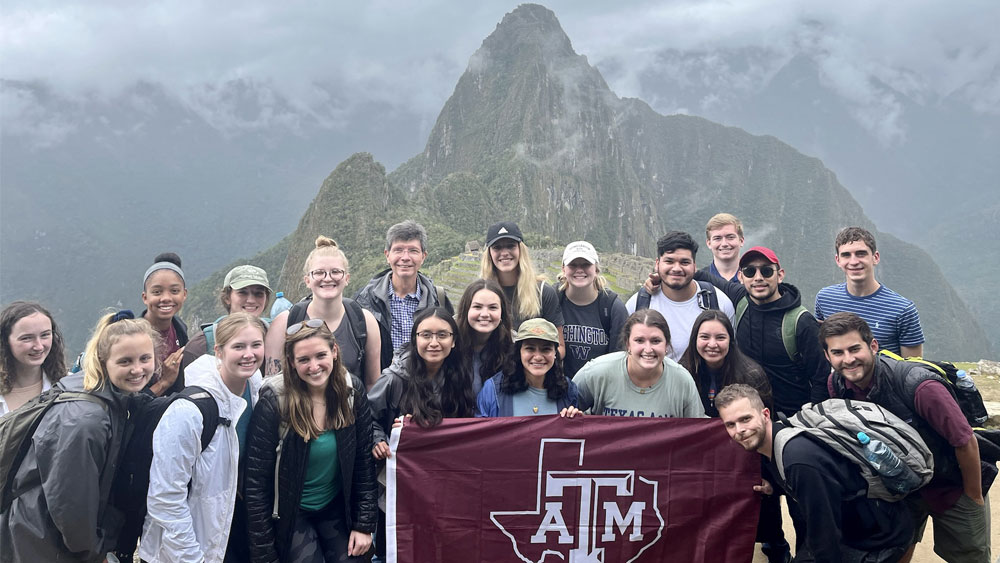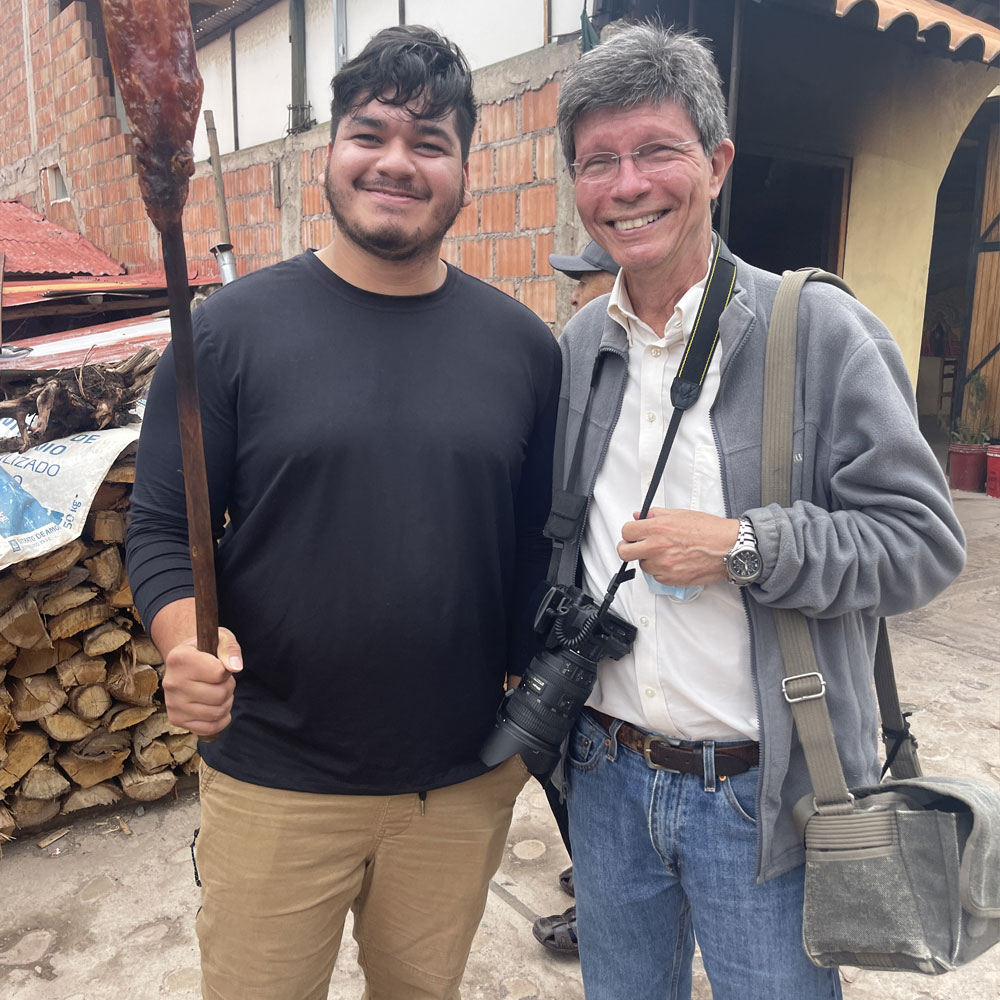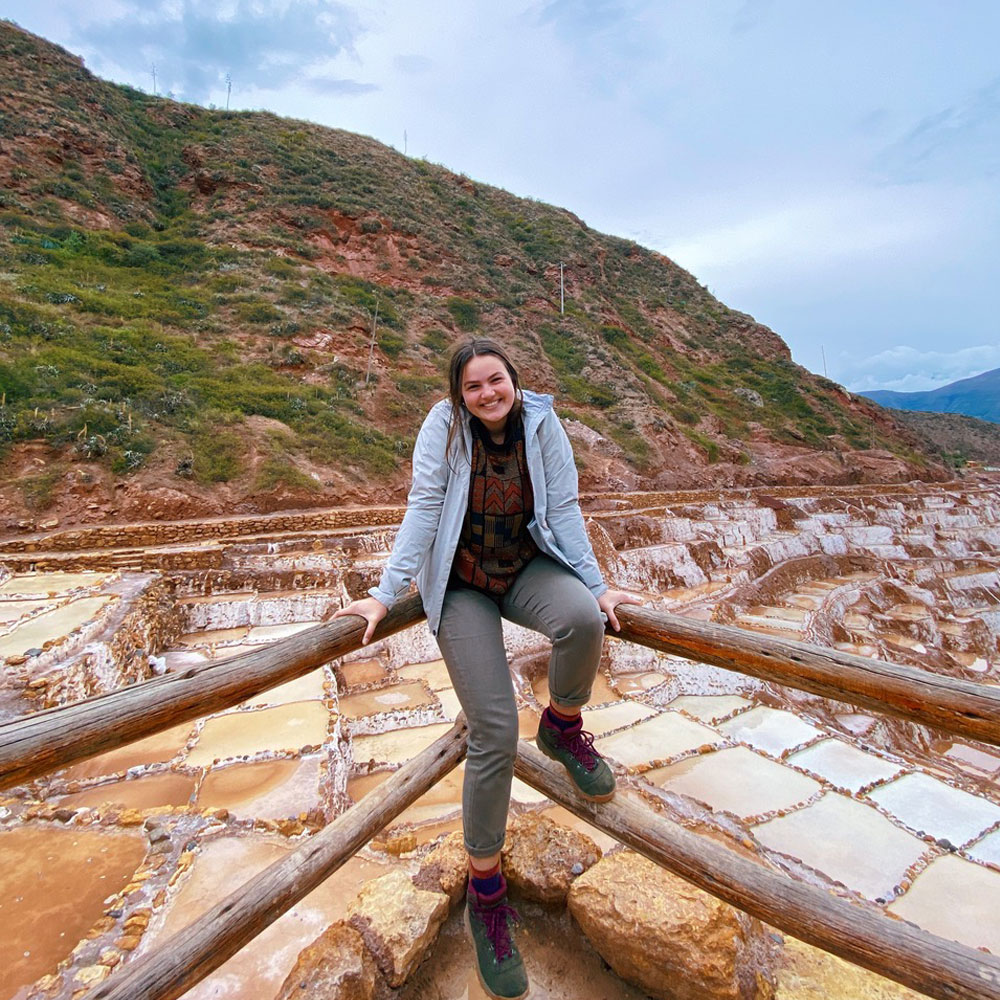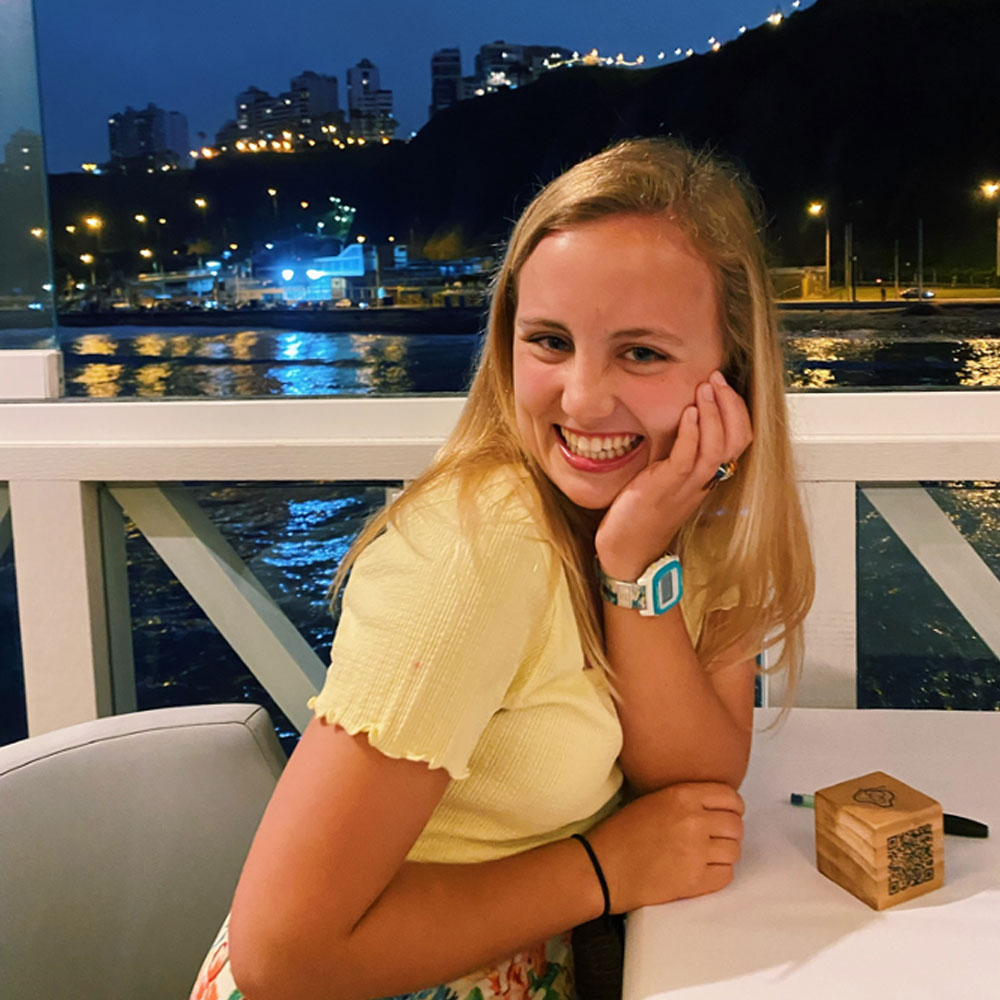
For Dr. Francisco Olivera, traveling to Peru during the holiday break meant going home. However, for the 22 engineering students who joined him in Peru from the Zachry Department of Civil and Environmental Engineering at Texas A&M University, it was a whole new world. The study abroad trip gave them an experience in a different cultural frame while learning to use geographic information systems.
They explored and toured the city of Lima, Peru, and enjoyed local restaurants serving ceviche and gelato. In Paracas, Peru, they felt the wind of the desert as their dune buggies glided through the sand, and they watched the sunset over the dunes. A few tried their hand at surfing in the Pacific Ocean or sandboarding. A boat ride around the Ballestas Islands provided sweeping views of rock arches, wild seabirds and sea lions.
Clouds, mist and rain lingered over the Peruvian Andes Mountains as they stood in awe of one of the New Seven Wonders of the World — Machu Picchu. They visited Cusco, fed alpacas and toured the Sacred Valley of the Incas.
The study abroad program lasted three weeks, but the students gained experiences that they would remember for the rest of their lives.

New experiences
Senior civil engineering major Libby Roberts had never traveled outside the United States before boarding the plane to Peru. However, as she met up with other students at the airport, her nerves dissipated, and she began to realize that she was about to have one of the most significant and most fun experiences of her life.
"My experience definitely made me more outgoing and excited about trying new things. I didn't know anyone before the trip, but making friends wasn't hard at all because everyone was together all the time and bonding over a trip is one of the fastest ways to get close," she said. "The experience also made me see different ways to do things and different values that I could incorporate into my own life. The slower pace of life was very enjoyable and refreshing to me and has been something I brought back with me when I returned home."
Alex Ramirez, a senior civil engineering major, is not new to traveling. He was in the military, but when he came to Texas A&M, he knew he wanted to study abroad.
"The class structure was well planned out to allow us to absorb the learning material through practical applications while giving us ample time to explore Lima and its rich culture," he said. "I had the opportunity to not only visit a beautiful country but made some new friends and created some amazing memories."
Elena Feghali, a senior civil engineering major, was born in Europe and grew up in the Middle East. It was not her first experience abroad, but traveling and gaining new perspectives is an incredibly important aspect of her life.
"The opportunities we have to study abroad at Texas A&M are far more prevalent than those outside the college sphere," she said. "It can be one of the most eye-opening and life-changing experiences if you let it be. You have so much to learn if you put yourself out there."

Why study abroad
Studying abroad allows learning outside the four walls of a classroom and creates unique learning experiences for students.
Olivera, associate professor in the department, explained that when he goes home to Peru for winter break, he sees his nephews and nieces watch Netflix, but the movies are different from Netflix in America. The business is global, but the culture is not.
"Despite globalization, people worldwide stick to their cultural values and manifestations," he said. "This is a fundamental concept for young engineers to learn if they plan to join an industry becoming more and more global over time. Studying abroad exposes students to these types of similarities and differences and prepares them for the engineering challenges of the future.
"In times when engineering companies are looking for good people and good engineers with global experience, participating in study abroad allows them to stand out with respect to others."
For Ramirez, he said immersing himself in a different culture was a huge benefit.
"As a Hispanic student, I thought going to Peru would be like my experience going to my homeland of Mexico, but although they share the same language, there were vast differences between the two cultures," he said. "Be willing to try new things, get out of your comfort zone, step into local traditions and eat the local delicacy."
Roberts said studying abroad has been her favorite thing in college, and she only regrets that she didn't do it more.
"All the food we ate in Peru was very different and adventurous compared to what I normally eat, but I never regretted trying something even when I didn't like it," she said. "Having an open mind and approaching everything new with an excited attitude can really shape the whole experience."
Feghali agreed that getting out of your comfort zone is important when studying abroad.
"You will thank yourself in the end," she said. "The best way to grow in yourself and your connections to others is to learn from those with different perspectives from yourself. If you feel comfortable, you're not challenging yourself enough."
It can be one of the most eye-opening and life-changing experiences if you let it be. You have so much to learn if you put yourself out there.

Lasting impact
When traveling to his home country, Olivera sees firsthand the impact the experience has on his students.
"I enjoy seeing their faces when they discover something they did not expect," he said. "Many people think Peru is just Machu Picchu and llamas and do not know that Lima is a 10-million-person metropolis ranked as one of the top gastronomic destinations in the world. Life can be good in Peru, and that is something the students learn in just three weeks. In fact, some of them wanted to stay."
It is evident in how the students speak about their experiences that they connected with Olivera on a different level once outside the classroom. They agreed the experience left a lasting impact on them and created a community between them and Olivera.
"I would like to thank Dr. Olivera for showing us his home country of Peru," Ramirez said. "This study abroad experience would not have been possible without his passion for teaching and his dedication to ensuring that we got the best of what Peru has to offer."
Roberts said she would love to go back to Peru and explore more of the culture, history and nature.
"If Dr. Olivera ever creates a teaching assistant position for the class, I'm sure there will be a long line of my classmates all wanting to go with him," she said.